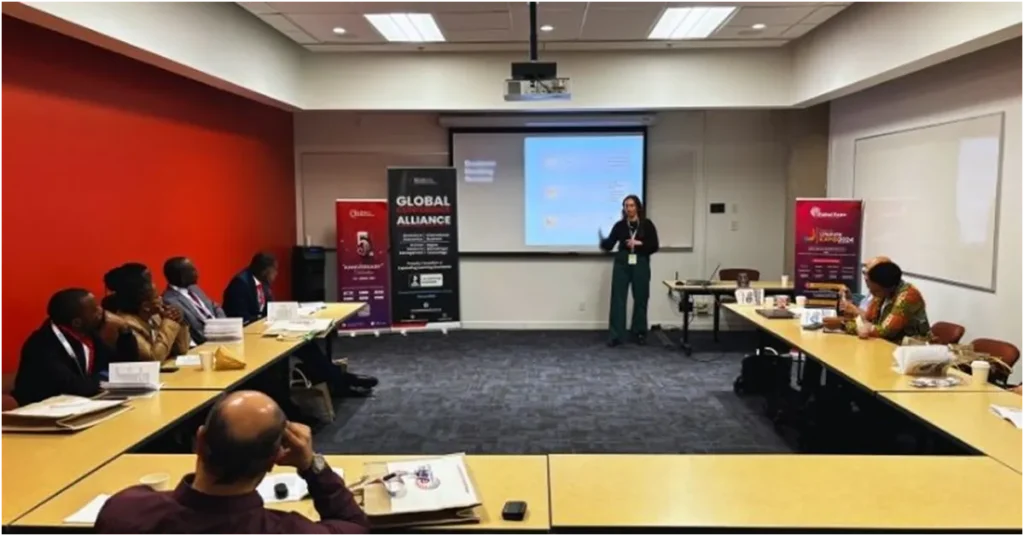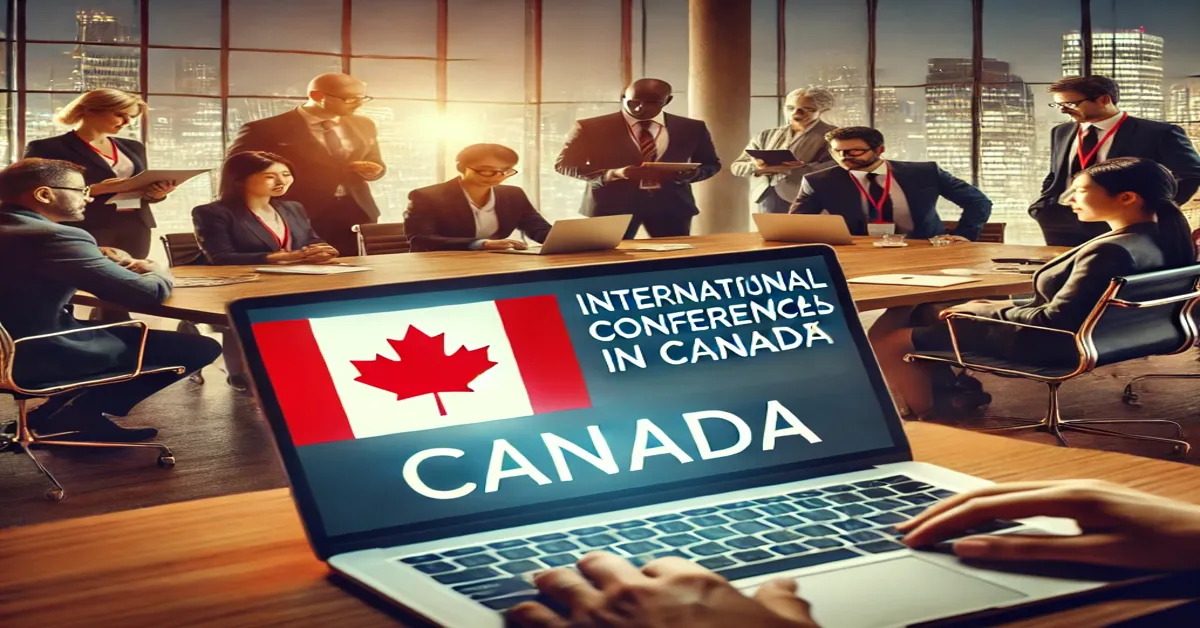In recent years, Canada has emerged as a prime destination for international conferences, attracting researchers, professionals, and academics from around the globe. With the variety of events available, picking one wisely is extremely important.
Finding and selecting the right conference can amplify your networking opportunities, academic growth, and professional impact. But the question is: How to search for and select international conferences in Canada?
To find international conferences in Canada, define your goals, then check event platforms, university websites, and social media to search. Assess conference reputation, review agendas, consider accessibility, and prepare for networking opportunities.
Curious to know more details about this topic? The following article will help you find the best conference in Canada using more strategies.
Importance of International Conferences in Canada
International conferences in Canada offer excellent opportunities for professionals, researchers, and students to connect and learn from global experts. By attending, participants gain insights into the latest trends and innovations in their fields. These conferences encourage collaboration, inspire new ideas, and help attendees build valuable professional networks.

Canada’s rich and inclusive environment makes it an ideal location for international gatherings across various industries and fields. With a diverse line-up of upcoming conferences in Canada across technology, science, health, and more, the country attracts attendees from around the world. Professionals attending these events can access valuable platforms for learning, sharing, and exploring global perspectives within a supportive environment.
Additionally, international conferences can boost career growth by connecting participants with influential thought leaders. Networking at these events opens doors to fresh ideas and unique research possibilities. Canadian conferences help professionals broaden their knowledge and make lasting industry connections.
What Happens at International Conferences in Canada?
Canada hosts international conferences which provide professionals with an opportunity to share knowledge, network, and talk about innovations. These events offer various activities specifically designed to maximize learning and collaboration among participants. Here’s what typically happens at these conferences:
- Keynote Speeches: Renowned experts deliver keynote addresses, setting the stage for the conference’s theme. Their insights inspire attendees and engage in meaningful discussions.
- Panel Discussions: Panels consist of experts discussing specific topics, providing diverse perspectives on relevant issues. These discussions allow for audience interaction and engagement.
- Workshops: Interactive workshops offer hands-on experiences and practical skills development. Participants can dive deeper into specific subjects and learn directly from facilitators.
- Networking Opportunities: Conferences provide ample chances to meet professionals and researchers in your field. Building connections can lead to future collaborations and career advancements.
- Poster Presentations: Researchers showcase their work through poster sessions, allowing attendees to view and discuss their findings. This format encourages feedback and idea exchange.
- Exhibitions: Companies and organizations display their latest products and services, showcasing innovations to attendees. Exhibitions allow networking with industry representatives and discovering new technologies.
- Roundtable Discussions: These sessions encourage open dialogue among participants on various topics. They encourage collaborative thinking and promote idea-sharing among peers.
- Social Events: Evening receptions or dinners provide informal settings for networking and building relationships. These events help strengthen connections established during the conference.
How to Search for and Select International Conferences in Canada?
In Canada, finding the right international conference can be both exciting and challenging. With so many options available, knowing how to search effectively is essential. The following guide will assist you in managing the selection process and getting the most out of it:

Identify Your Goals
Start by defining what you hope to achieve from attending a conference. Make sure you consider your goals, such as networking, learning, or presenting your research. Knowing your goals will help narrow down your options. This focus will guide you in selecting the most suitable events.
Use Online Platforms
Utilize online platforms like Global Conference Alliance Inc. to discover upcoming events. These platforms often provide filtering options by date, location, and subject area. Exploring multiple websites can reveal various conferences you might not have considered. Make a list of those that catch your interest.
Check University Websites
Many universities and research institutions host or promote conferences. Visit the websites of institutions relevant to your field for announcements. They often have dedicated sections for upcoming events and conferences. This can lead to valuable opportunities you might otherwise miss.
Explore Social Media
Social media platforms are excellent resources for finding conferences. Many organizations promote their events on LinkedIn, Twitter, and Facebook. Following relevant groups and hashtags can keep you informed about announcements. Engaging with these communities can also expand your networking potential.
Assess the Conference’s Reputation
Consider the reputation of the conferences you’re interested in. Look for feedback from previous attendees and speaker line-ups. A well-regarded conference often attracts influential speakers and participants. This can significantly increase your learning and networking opportunities.
Review the Agenda
Carefully review the conference agenda before making a decision. Look for sessions that align with your interests and goals. A well-structured agenda can maximize your time and learning. Ensure that there are enough relevant sessions to make attendance worthwhile.
Consider Location and Accessibility
Think about the conference location and how easy it is to attend. Consider travel costs and time when planning your attendance. A conveniently located conference can improve your overall experience.
Prepare for Networking
Prepare yourself for networking opportunities at the conference. Bring business cards and be ready to engage with others. Having a simple pitch can help you introduce yourself effectively. The ability to build connections can be a key factor in advancing your career and collaborating with others in the future.
What Are the Steps to Attend an International Conference in Canada?
You can advance your professional development by attending an international conference in Canada. Following a clear set of steps can simplify the process and ensure you are well-prepared. Here’s a guide to help you take the first steps toward participating in the event:
Step 1: Confirm the Event Details
Start by confirming the conference date and location. Check the official website for the most accurate information. Ensure that the event fits into your schedule and is accessible. This initial step sets the foundation for your participation.
Step 2: Register for the Conference
Once you have confirmed the event details, proceed to register for the conference. Follow the registration process outlined on the conference website. Payment may be required at this stage, so ensure you have your financial details ready. Completing registration secures your spot at the event.
Step 3: Obtain an Invitation Letter
After registration, request an invitation letter from the conference organizers. This letter is often necessary for visa applications. Provide any required information to ensure a smooth process. The invitation letter will be a key document in your travel preparations.
Step 4: Apply for a Canadian Visa
With the invitation letter in hand, you can now apply for a Canadian visa. Check the specific visa requirements based on your country of residence. Gather the necessary documents, including the invitation letter, and submit your application. This step is crucial for your legal entry into Canada.
Step 5: Plan Travel and Accommodations
Once your visa is confirmed, begin planning your travel and accommodations. Research flight options and book your tickets in advance to secure the best rates. Consider nearby hotels or other lodging that suits your budget. A well-planned trip will ensure a smooth journey to the conference.
Essential Tips for Effective Conference Networking
Networking at conferences is essential for developing your career and building professional relationships. Through effective networking, collaborations can be formed, job opportunities are created, and invaluable insights can be gained. The following tips will help you manage networking successfully:
- Be Approachable: Maintain open body language and a friendly demeanor to invite conversations. A warm smile can make a significant difference in your approachability.
- Prepare Your Elevator Pitch: Prepare a concise introduction that summarizes who you are and what you do. A well-prepared pitch helps you make a strong first impression.
- Ask Open-Ended Questions: Encourage deeper conversations by asking open-ended questions related to attendees’ work or interests. This approach encourages meaningful exchanges and insights.
- Listen Actively: Demonstrate genuine interest in what others have to say by listening actively. Engaging fully in conversations shows respect and promotes stronger connections.
- Exchange Contact Information: Always carry business cards or have a digital way to exchange contact details. This facilitates follow-ups and helps maintain newly formed connections.
- Follow-Up After the Conference: Reach out to your new contacts within a week after the conference. A simple email or message can reinforce your connection and keep the conversation going.
- Attend Social Events: Participate in social events or gatherings associated with the conference. These relaxed settings often provide excellent opportunities for informal networking.
- Join Relevant Sessions: Choose workshops or panel discussions related to your interests and expertise. Engaging in these sessions can connect you with like-minded professionals.
Final Thoughts
Careful consideration and strategic planning are required when choosing an international conference in Canada. To identify suitable events, begin by defining your goals. Utilize event platforms, university websites, and social media to broaden your search.
When exploring how to search for and select international conferences in Canada, consider the reputation and agenda of each event to ensure they align with your interests.
Additionally, remember to prepare for networking opportunities, as they can significantly impact your conference experience. By following these steps, you can maximize your learning and professional growth while making valuable connections in your field.







